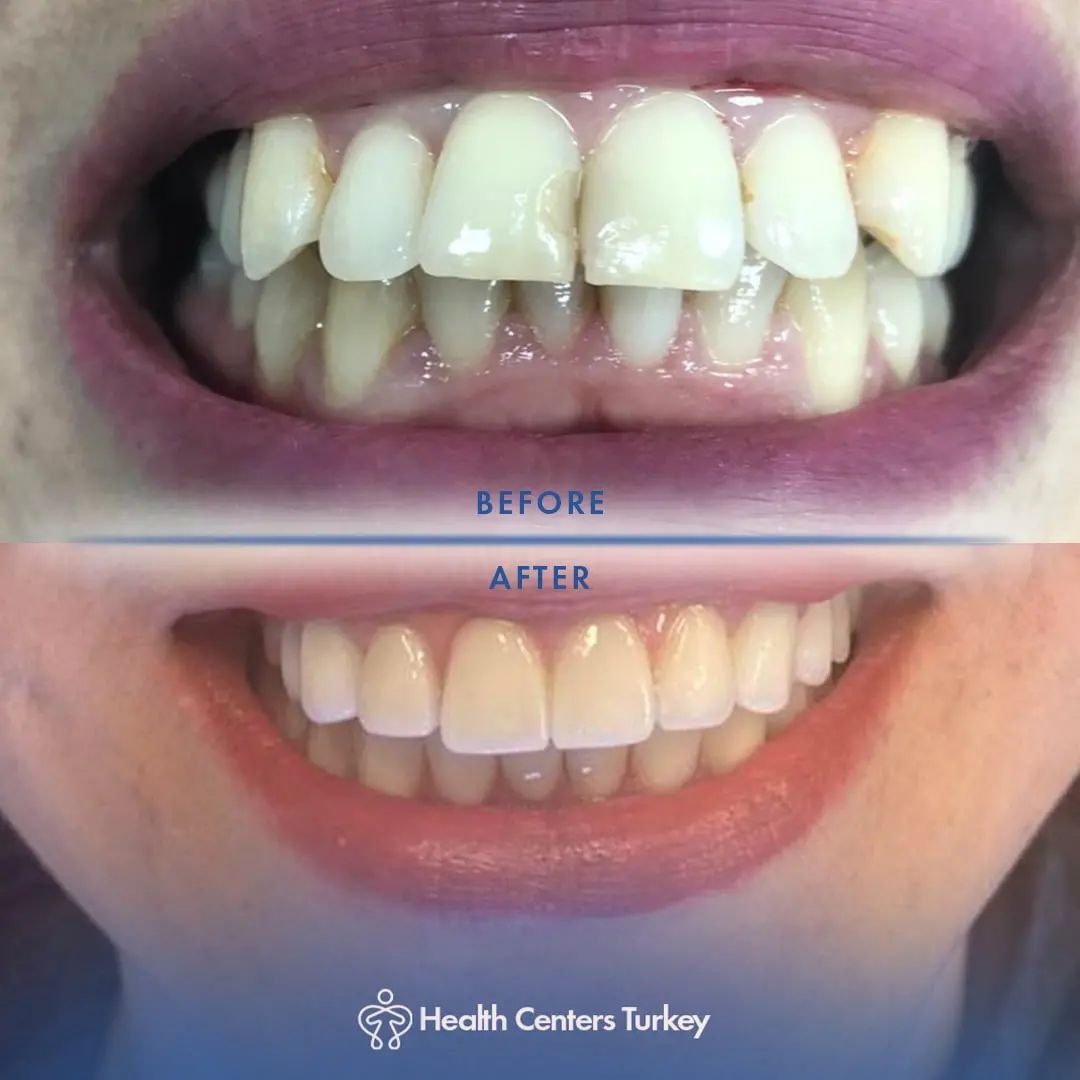Highly Rated Dental Treatments for International Patients in Turkey
Highly Rated Dental Treatments for International Patients in Turkey
Blog Article
Transform Your Smile with Innovative Cosmetic Dentistry

Dental implants have become a focus in modern dentistry, offering a dependable solution for these going through tooth loss. Among the a number of advantages they offer, one vital side worth contemplating is their impact on adjacent teeth. Understanding how dental implants affect surrounding teeth aids in making knowledgeable decisions about oral health.
When a tooth is misplaced, neighboring teeth can simply shift towards the house left behind. This movement can result in misalignment, which compromises the overall bite and performance of the mouth. Dental implants mimic natural tooth roots, thereby sustaining the position of adjacent teeth.
Understand the Best Choices for Dental Care across Turkey
The stability provided by an implant is essential, because it helps in preserving not just the physical alignment but in addition the structural integrity of the jawbone. When a tooth is missing, the underlying bone can begin to deteriorate as a result of lack of stimulation. An implant exerts strain on the bone throughout chewing, much like a natural tooth, which promotes bone health.
In some cases, a bridge or partial denture may be thought of as an alternative to implants. While these options might restore some performance, they can place additional stress on neighboring teeth. Bridges often require submitting down the encircling teeth to accommodate the anchors, thereby affecting their health over time. Dental implants, however, do not alter present teeth, making them a extra conservative alternative.
Personalized Teeth Care Plans for Every Patient in Turkey
Hygiene turns into another critical factor when considering adjacent teeth within the context of implants. With dental implants, the person can preserve an everyday hygiene routine much like natural teeth. Flossing and brushing around the implant are simple, making certain that the gum tissue stays wholesome and minimizing the chance of gum disease that might adversely affect adjacent teeth.
Moreover, the materials used in dental implants are biocompatible. This means they are designed to integrate well with the body, reducing the probabilities of an antagonistic reaction. This attribute not only makes the implant protected but in addition protects nearby teeth from potential issues that could arise due to contamination or infection.
In terms of aesthetics, dental implants provide a natural feel and appear, carefully resembling authentic teeth. Adjacent teeth profit from this aesthetic attraction as properly. When an implant is placed, the encompassing gum tissue can be shaped to imitate natural contours, thereby enhancing the general appearance of the smile. This aesthetic issue can encourage individuals to put money into their oral care routines, benefiting both the implants and adjacent teeth in the long term.
Affordable Options for Dental Treatments in Turkey
Another concern is the potential for gum disease, which may have an result on the health of adjacent teeth. Gum disease can happen when plaque builds up round teeth and implants. Regular dental visits and applicable oral hygiene can mitigate this concern. The presence of implants can also serve as a motivator for better dental hygiene practices, as individuals become more aware of maintaining their total mouth health.
Studies have proven that dental implants can contribute to a big improvement in quality of life. Patients typically experience elevated confidence and are much less hesitant to smile or interact in social interactions. A healthy and well-maintained smile indirectly promotes higher take care of adjacent teeth, as individuals are inclined to become extra conscious of their overall oral hygiene.
One often-overlooked aspect is the psychological impact of dental implants on sufferers. Knowing that implants offer long-term options can ease the nervousness associated with tooth loss. With fewer worries about future tooth shifts, sufferers are extra likely to make investments time and effort into caring for his or her teeth, which incorporates adjacent teeth.
In conclusion, dental implants function more than only a answer for missing teeth; they play a pivotal function in maintaining the health and integrity of adjacent teeth. From stopping misalignment to promoting gum health and enhancing aesthetics, the advantages are manifold. By opting for implants, people can not only restore performance but also foster a more healthy oral setting for surrounding teeth. The psychological and aesthetic benefits further contribute to an total enhanced quality of life.
Tailored Oral Health Strategies to Meet Your Needs
In the long term, understanding how dental implants affect adjacent teeth can information individuals in making empowered decisions regarding their dental health. The integration of read review those implants into the mouth acts as a stabilizing force, safeguarding both the bodily alignment and functionality of neighboring teeth, whereas selling a long-lasting, healthy smile.
- Dental implants usually do not exert strain on adjacent teeth, sustaining their integrity and decreasing the chance of shifting or misalignment.
- The placement of an implant often encourages better oral hygiene habits, positively influencing the health of adjacent teeth by way of improved cleaning practices.
Experience World-Class Oral Care while Visiting
- In some circumstances, dental implants can stimulate the encompassing bone, which helps protect the natural teeth's position and general dental structure.

- The hole left by missing teeth can lead to bone loss; dental implants can prevent this, thereby protecting adjacent teeth from potential issues.
- Accessible Dental Implants at Renowned Practices in Turkey
Explore Comprehensive Oral Treatments throughout Turkey
- By restoring the function of a missing tooth, implants assist distribute chunk forces evenly, decreasing wear and stress on neighboring teeth.

- Properly placed dental implants can act as a support structure, preventing unwanted motion of adjacent teeth ensuing from tooth loss.
- The presence of an implant could improve the aesthetic appearance of surrounding teeth by filling in gaps and supporting facial structure.
Affordable Cosmetic Dental Bridges designed for Patients
- Dental implants eliminate the necessity for adjacent teeth alteration, unlike bridges, which require reshaping the close by teeth for assist.
- Implants additionally cut back the chance of gum disease in comparability with different tooth replacement options, indirectly benefiting adjacent teeth by promoting overall oral health.
Optimize Your Oral Health Care with Experienced Professionals in Turkey.
- Long-term success of dental implants is linked to the health of surrounding teeth, emphasizing the significance of standard dental check-ups and maintenance.
How do dental implants have an result on adjacent teeth?
Uncover Budget-friendly Oral Care Solutions in Turkey
What are dental implants and the way do they work with adjacent teeth?undefinedDental implants are synthetic tooth roots placed into the jawbone to support replacement teeth. They don’t affect adjacent teeth directly, as they're impartial constructions. Instead, they may help keep the integrity of surrounding teeth by preventing bone loss.
Can dental implants cause harm to adjacent teeth?undefinedIf positioned appropriately, dental implants should not harm adjacent teeth. However, improper placement can lead to points like misalignment or pressure, emphasizing the importance of selecting an skilled dental professional.
Will dental implants promote bone growth round adjacent teeth?undefinedYes, dental implants assist stimulate the jawbone, which may encourage bone growth. This can profit adjacent teeth by maintaining bone density and stability in the space.
A Complete Guide to Dental Treatment Abroad within Turkey
Should I worry about gum disease affecting adjacent teeth after getting an implant?undefinedGood oral hygiene is crucial after getting an implant. Gum disease can nonetheless have an result on adjacent teeth, but a properly maintained implant doesn't improve that risk. Regular dental visits can help monitor and preserve gum health.
What happens to adjacent teeth if I lose a dental implant?undefinedIf a dental implant fails or is lost, adjacent teeth could shift due to changes in chunk alignment and help structure. This could result in misalignment or further tooth loss if not addressed.
Are there any special care necessities for adjacent teeth after getting implants?undefinedMaintaining good oral try here hygiene practices, together with regular brushing, flossing, and dental check-ups, is essential for each dental implants and adjacent teeth to prevent decay and gum disease.
Unveil Your Whitest Smile with Trusted Dental Care in Turkey
Do dental implants assist help adjacent teeth when chewing?undefinedAbsolutely. Implants can enhance general bite perform, which can alleviate stress on adjacent teeth during chewing. This can result in higher distribution of forces, selling oral health.
How can I prevent problems with adjacent teeth and implants?undefinedConsistent dental care, including skilled cleanings and examinations, regular brushing and flossing, and following your dentist’s aftercare directions, are key to preventing issues.
Can adjacent teeth move if I have a dental implant?undefinedAdjacent teeth might transfer if they are not well-supported, especially after tooth loss. A dental implant helps preserve the structure, decreasing the chance of shifting teeth. Report this page